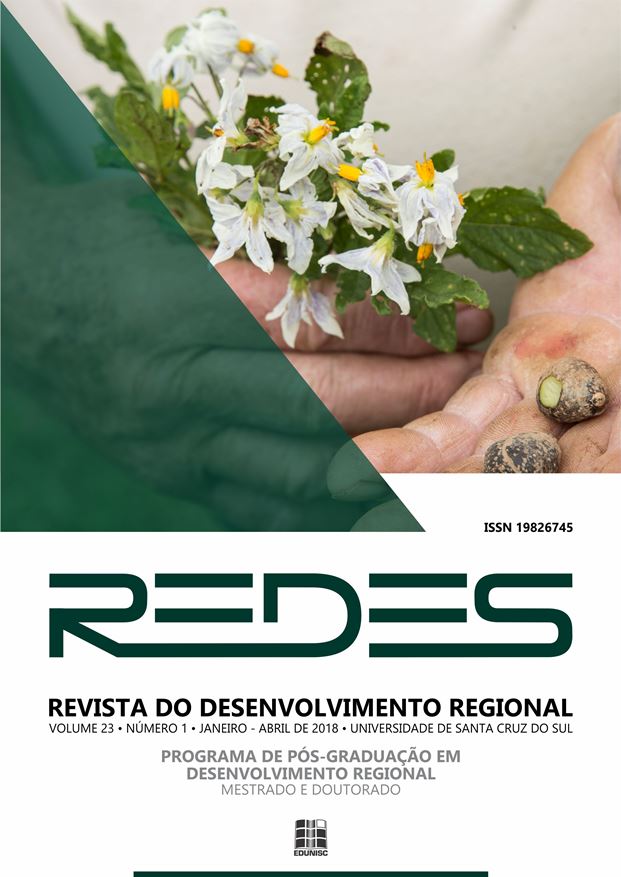Productive inclusion, family livestock situation of rural women of brazil without poverty program in a municipality of the rs - context a little-known reality
DOI:
https://doi.org/10.17058/redes.v23i1.6553Keywords:
Family livestock. Sexual Division of Labor. Women.Abstract
The aim of this article is to describe and analyze sociodemographic characteristics of rural women working in family livestock, inserted in Brazil without Poverty Plan in Encruzilhada do Sul. This type of work is culturally defined as masculine as well, the question is how women in it operate. In Rio Grande do Sul, the southern half has in beef cattle the main productive activity which alludes to a supposed production homogeneity. This condition challenges and boost research that shows the multiplicity of experiences of livestock rural families. Thus, the motivation of this article also is based on the problem of discussion little debated on family livestock, for example, the sexual division of labor and women's participation in the activity. So it was found the presence of women in family livestock and their inclusion in the Brazil without Poverty Program. The information analyzed shows that 92.31% of ownership in the program are women, 6.59% of men and 1.10% for both. This reality leads the female role of idea in action, however it is necessary to consider other issues that contribute to other explanatory possibilities of this condition. The trajectory and the sexual division of labor "earmarking" women to the most precarious jobs, it may be a potential answer. Thus, the recognition of women's work is hindered in social practices and intra-family and sexual division of labor is reaffirmed by the notions of what is "man of affairs and women's things". The issues that emerge interrelate livestock, poverty and gender, since most of the families of the Brazil without Poverty is also included in the livestock. We question the extent to which livestock is male activity and poverty would be a "parameter" to characterize rural activities, including livestock, as female?Downloads
Download data is not yet available.
Downloads
Published
2018-01-19
How to Cite
Marques Lopes, M. J., & Belem Langbecker, T. (2018). Productive inclusion, family livestock situation of rural women of brazil without poverty program in a municipality of the rs - context a little-known reality. Redes , 23(1), 31-52. https://doi.org/10.17058/redes.v23i1.6553
Issue
Section
Desenvolvimento Rural no contexto do Desenvolvimento Regional: avanços e retrocessos no Brasil recente



